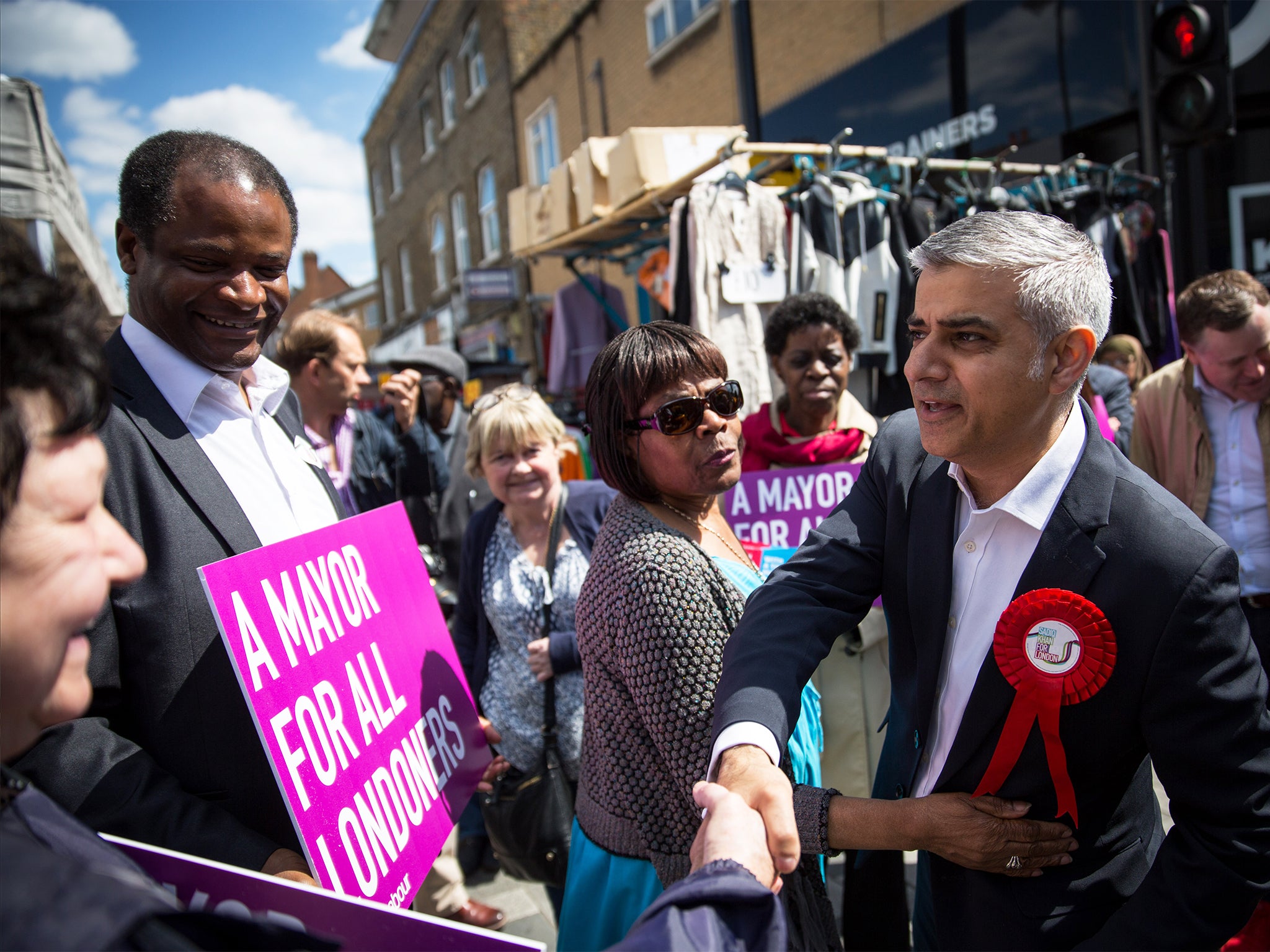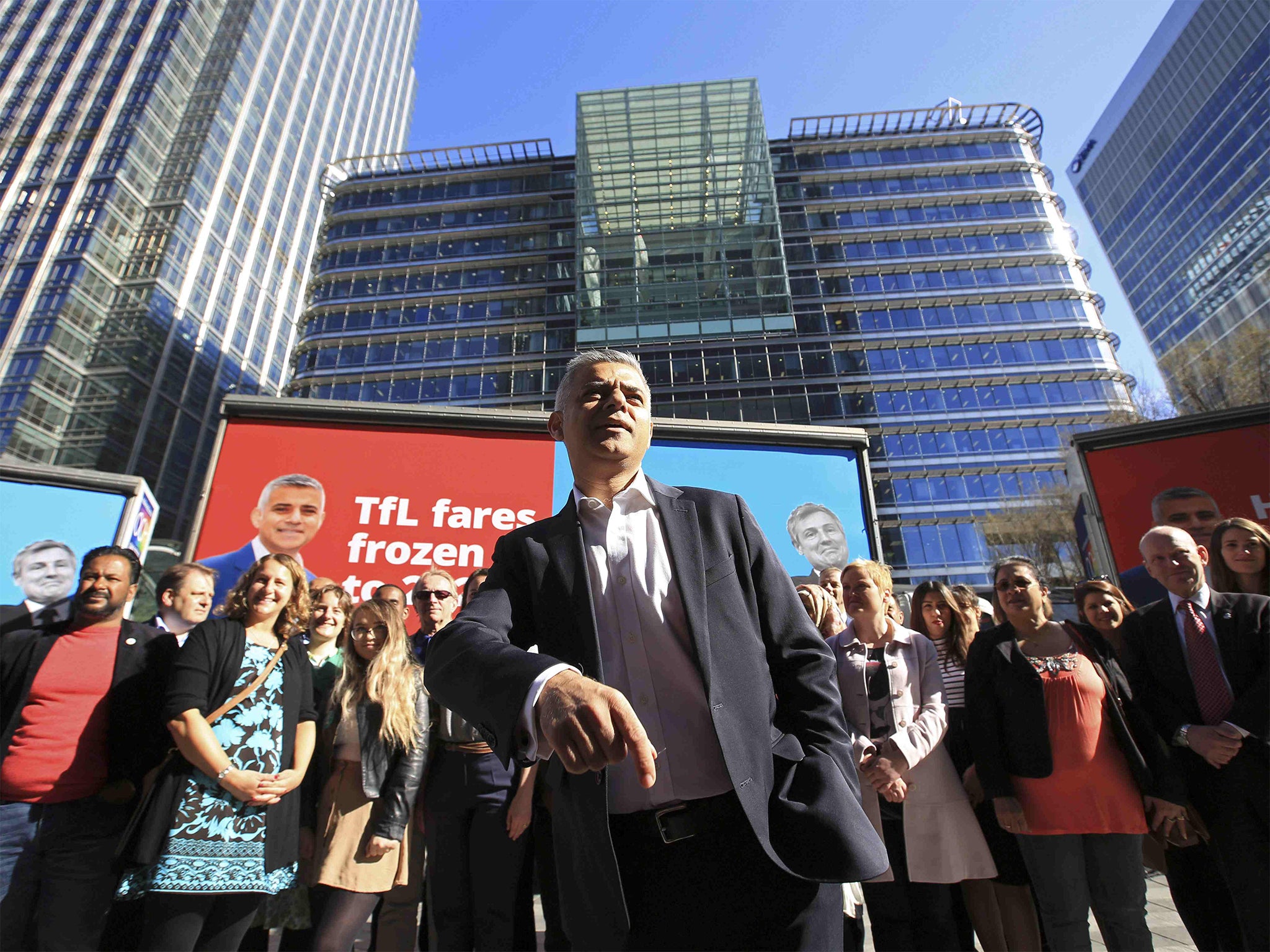Sadiq Khan: The bus driver’s son hoping to stop at City Hall
Labour’s candidate for Mayor of London stands on the brink of becoming the most powerful Muslim politician in Europe

Being the front-runner in any election is never easy. The opinion polls have long put Sadiq Khan on course to become mayor of London in Thursday’s contest, a result that would make him the most powerful Muslim politician in Europe.
But in recent weeks, the jitters in his camp have been growing. The polls got it wrong a year ago at the general election. Like Ed Miliband, Khan has been subjected to a ruthless and sustained barrage by the Conservatives that he is not up to the job in question, out of the Lynton Crosby playbook. Arguably, Khan's treatment has been worse than that suffered by Miliband, as it has focused on his faith and alleged links with Islamic extremists.
The row over anti-Semitism in the Labour Party exploded at the worst possible time for Khan, allowing the Tories to claim that he, Jeremy Corbyn and Ken Livingstone are all part of the same left-wing family. Some Khan allies worry privately that the personal attacks could swing votes in the outer London boroughs, which were crucial in Boris Johnson’s two mayoral election victories in 2008 and 2012. “If it didn’t work, the Tories wouldn’t do it,” one said. At the weekend, Khan made a last-minute appeal to get out the Labour vote by conceding that the anti-Semitism controversy had harmed his chances.
Khan admits that as a solicitor, he defended some “unsavoury individuals,” but insists he is a moderate Muslim who has fought extremism all his life. But critics claim not all his contacts with extremists are explained by his work as a human rights lawyer, chair of the pressure group Liberty and work in his Tooting constituency.
The Khan campaign accuses the Tories of fighting dirty because they do not want to talk about issues like housing and transport that matter most to Londoners. Khan has promised to freeze Tube and bus fares for the mayor’s four-year term, a populist throwback to Ken Livingstone’s reign at the Greater London Council in the 1980s. The Tories claim that would create a £1.9bn “black hole,” but Khan insists his plan can be funded by efficiency savings at Transport for London. He would ensure that 50,000 homes are built each year by using publicly owned land, and insist that half were “genuinely affordable”.

To answer David Cameron’s accusation that Khan would use Londoners as “lab rats” in an “experiment” for Jeremy Corbyn, Khan promises to be the most pro-business mayor the capital has seen.
While Tory claims of “extremism” are wide of the mark, their charge of “opportunism” against Khan has more credence. He nominated Corbyn as Labour leader last year to help get him on the ballot paper at a time when Khan was courting Labour members in the left-leaning London party, and the favourite to become their mayoral candidate was the Blairite Tessa Jowell. After winning the nomination, Khan was quick to distance himself from Corbyn and declare he would be his own man at City Hall. Khan was also quick to call for Livingstone (who endorsed him in Labour's mayoral race) to be suspended last week when he suggested that Hitler had been a Zionist.
Khan voted for Andy Burnham rather than Corbyn last year and backed the Blairite Ben Bradshaw in Labour’s deputy leadership contest – a sign, say friends, that he spans the whole Labour spectrum. He ran Miliband’s leadership campaign in 2010 but had a less successful experience during Alan Johnson’s bid for the deputy’s post in 2007. Johnson, the front-runner, was overtaken by Harriet Harman.
The “opportunism” charge against Khan extends to policy. Khan used to back a third runway at Heathrow but about-turned after deciding to run for mayor, calling instead for a second runway at Gatwick. He explains this was because the facts about London’s poor air quality changed, so he changed his mind.
While both Khan and Goldsmith may lack the X Factor appeal of “Boris and Ken”, it would suit Khan if Londoners see this contest as one between the son of a billionaire and the son of a bus driver who became the first Muslim to attend the Cabinet in 2008 – fittingly, as transport minister. One of eight children, he grew up on a council estate in the Tooting constituency he has represented since 2005.

Populus, the pollsters, found that Khan is better known among Londoners than Goldsmith, particularly among non-whites – an advantage in such a racially mixed city. But some voters described him as “untrustworthy, dodgy and shifty” – a view more likely to be held among whites, according to Populus.
If he wins, 45 year-old Khan would take over what he regards as his dream job. He would have the chance to show the public that Labour can be competent and effective in power, at a time when many voters doubt it. If he loses, he will continue as MP for Tooting and, no doubt, at some point return to Labour's frontbench. Alhough after recent tensions, perhaps not while Corbyn is leader.
Join our commenting forum
Join thought-provoking conversations, follow other Independent readers and see their replies
Comments
Bookmark popover
Removed from bookmarks